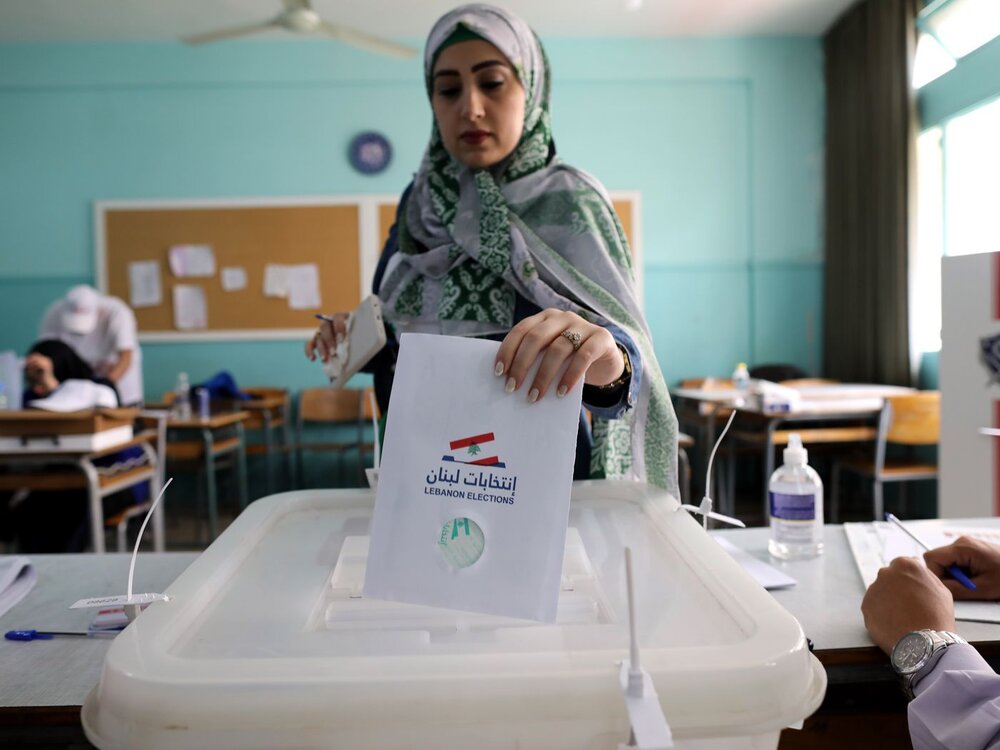Lebanon elections uphold longstanding status quo

TEHRAN – Following inconclusive parliamentary elections that were seen as a litmus test for many political factions, Hezbollah and its ally Amal movement underlined their supporters to rein in their celebratory mood for fear that celebrations would create frictions with troublemakers.
In a joint statement on Wednesday, the Shiite groups said they understand the feelings of their supporters after all the incitement and provocations that came before the elections. Thanking their supporters for their expressions of happiness over the results of the elections, the Hezbollah and Amal movements called on their supporters to avoid staging motorbike processions so that some troublemaking people do not take matters to places that would disturb the electoral success.
They also encouraged their supporters to refrain from any provocative moves. “The elections have passed, and what is required today is for everyone to return to the logic of dialogue and convergence in order to get out of the stifling economic and financial reality,” they said.
The statement came amid preparations for celebrating the results among the Shiites who voted for Hezbollah and Amal candidates. Despite the fact that Hezbollah and Amal retained all their seats, there have been speculations over the possible loss that Hezbollah and its allies incurred in the elections.
Some media outlets and pundits rushed to conclude that Hezbollah allies have been delivered a heavy blow, losing their parliamentary majority.
CNN said in a report from Beirut that “Hezbollah has lost its parliamentary coalition majority in a Lebanese election that delivered significant gains to its rivals as well as to a protest movement that swept the country in a 2019 uprising.”
But disputes over who had the parliamentary majority were far from settled, with many sides claiming to have secured a majority.
Aside from these disputes, Hezbollah and its allies stuck to the principle of resolving problems through dialogue, distancing Lebanon from any insecurity and addressing pressing economic issues.
After a meeting, the Loyalty to the Resistance Bloc, which is the political wing of Hezbollah in parliament, called on “all political forces and factions to stop all electoral disputes, in order to advance the country.”
It referred to the “necessity of a calm and permanent objective approach to the development of the law and electoral performance.”
At the same time, Hezbollah appeared decisive in countering any efforts to create a political deadlock. Following the announcement of election results, Samir Geagea, who is now heading a remarkable parliamentary bloc, said his faction won’t participate in a national unity government, a position that seemed to be aimed at Hezbollah.
Hezbollah’s response was clear and decisive. Lawmaker Mohammad Raad, who heads the Loyalty bloc, replied to Geagea, warning: “If you do not want a national government, then you are leading Lebanon to the abyss and be careful not to be the fuel of a civil war.”
Raad added, “You have to cooperate with us, or else you will be destined to be isolated.”
The war of words between the two rival politicians came amid efforts to use the results of the elections to undermine Hezbollah despite the fact that Hezbollah retained all its seats and the real loss was incurred by the Free Patriotic Movement led by President Michel Aoun.
According to results announced by Interior Minister Bassam Mawlawi, the Lebanese Forces (LF) won 20 seats, the Free National Movement 18 seats while Hezbollah and the Amal movement gained 31 seats out of the 128-seat parliament. The independents have obtained 11 seats.
Some believe that the results showed that the Hezbollah and Amal movements still enjoy massive support in their own constituencies despite the multifaceted pressures they were subjected to before the elections.
